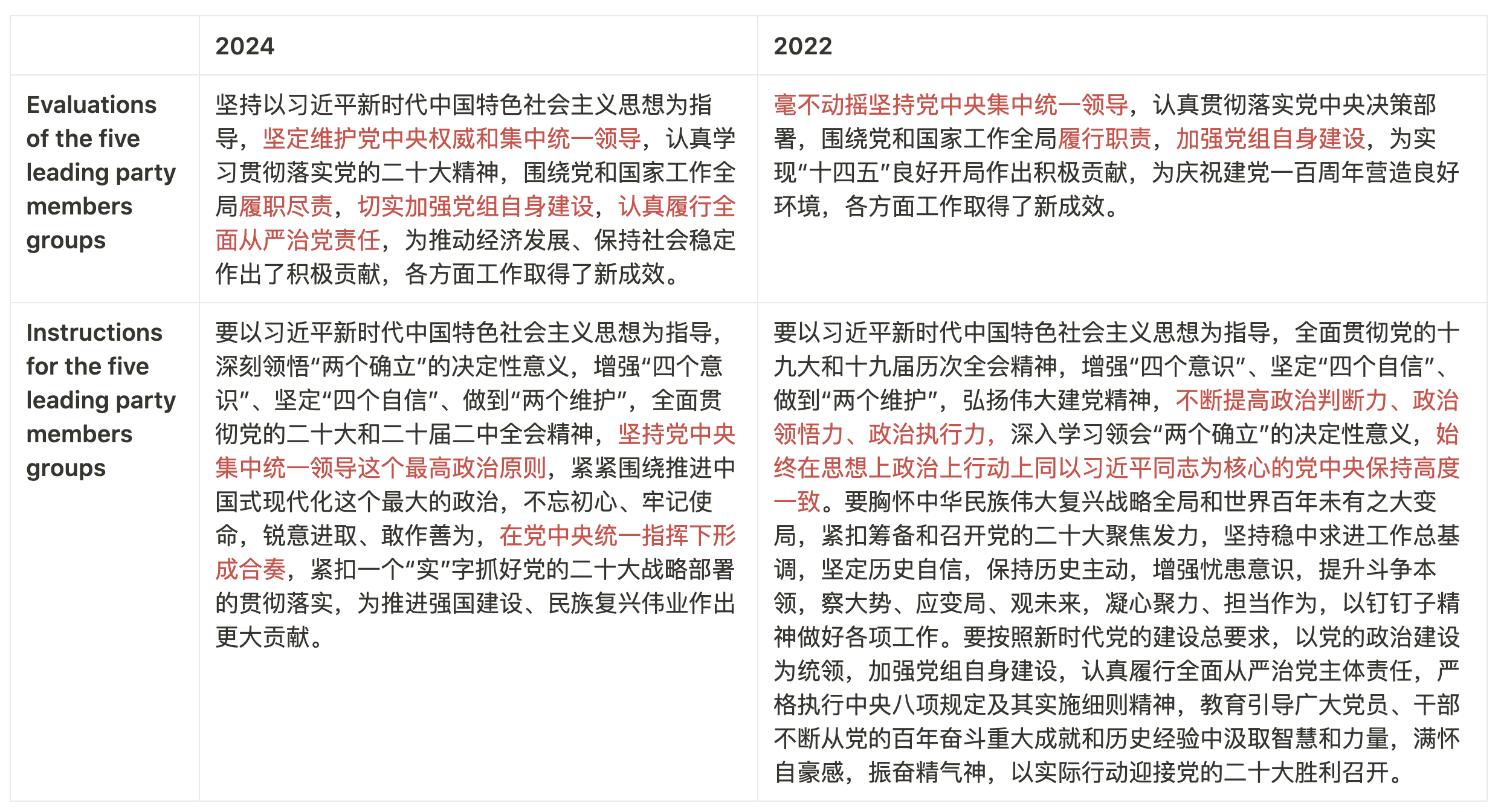Politburo Standing Committee Meeting: January 2024
The Politburo Standing Committee (PBSC) convened a meeting on January 4 to review the work reports of five leading Party members groups and the Central Secretariat [中文|EN]. Evaluating their performance, the PBSC also gave instructions for 2024.
Essentially, Xi Jinping evaluated his subordinates and their institutions, expressing expectations for the upcoming year. This offers us insights into the internal dynamics of Xi's administration.
The entities that reported to the PBSC include the Central Secretariat and the leading Party members groups of the National People's Congress, State Council, National Committee of the Chinese People's Political Consultative Conference, Supreme People's Court and Supreme People's Procuratorate.
The Central Secretariat (中央书记处), the administrative body supporting the Politburo and its standing committee, oversees day-to-day operations, coordinates tasks assigned by the Politburo, and makes routine decisions in line with directives.
Leading Party Members Groups
Leading Party members groups (党组) are Communist Party cells within non-Party organisations that are used to maintain Party authority.
Other methods used by the Communist Party to control and influence non-Party organisations include personnel appointments, concurrent roles, laws and regulations, etc.
To illustrate, the State Council executive team comprises exclusively Communist Party members, collectively forming the leading Party members group within the State Council.
In 1987, Party reformers advocated for the "separation of Party and government," leading to the gradual dismantling of Party cells in government bodies. However, reversals occurred in the late 1980s and 1990s, after Zhao Ziyang and other reformists were removed following the Tiananmen protests.
Regular Reporting
In the Xi era, reinforcing Party cells within non-Party organisations has strengthened Party control and enhanced Xi's authority.
In 2015, the Central Committee introduced trial regulations for leading Party members groups. Subsequently, in 2019, it issued the Regulations on the Work of the Leading Party Members Groups.
The Party leadership also mandated that the five leading Party members' groups submit annual reports to the PBSC, starting from 2015. The requirement was extended to include the Central Secretariat starting in 2016.
The PBSC would review the work reports from these six entities in January. It would evaluate the previous year's performance, issue instructions, and prepare a consolidated report for deliberation at the January Politburo meeting. The Politburo would then endorse the report and adopt the PBSC's views.
Considering Xi's dominance, these evaluations primarily reflect his assessment of his subordinates and the institutions they lead.
The process reinforces the notion that Xi is the ultimate authority rather than just the first among leaders.
Evaluations and Instructions
The first two tables below contain the PBSC's evaluations and instructions for 2024 vs 2022. My emphasis in red highlights the notable changes in language, which are collated in the following two tables. I will then discuss elite politics.
But first, note there is no public information available on the PBSC's evaluations and instructions for 2023; no relevant meeting readout has been released. However, the readout of the January 4 PBSC meeting mentions that the Central Committee has received annual work reports from the six entities since the 18th Party Congress in 2012.
New leaders were appointed to the six entities after the 20th Party Congress in October 2022. Any 2023 PBSC evaluation would have needed to distinguish and evaluate two leadership periods: January to October 2022 with the previous leaders and October through December 2022 with the new leaders.
Xi might have intentionally avoided issuing evaluations and instructions through the PBSC in 2023 to avoid political complications. It would have been unnecessary to antagonise former leaders so soon after his success at the 20th Party Congress. Additionally, it would have been premature to evaluate the new leaders only a few months into their terms.
2024 vs 2022


What does this tell us?
